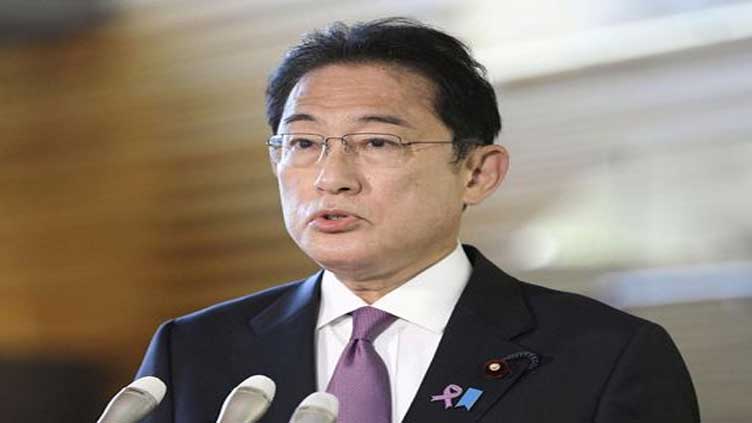At auto show, Japan's Kishida calls for exit from deflationary past

Technology
At auto show, Japan's Kishida calls for exit from deflationary past
TOKYO (Reuters) - Japanese Prime Minister Fumio Kishida used his visit to Tokyo's auto show on Thursday to call for the private sector's help in ensuring the economy makes a "total break" with its deflationary past.
Kishida met with Toyota (7203.T) Chairman Akio Toyoda and other industry executives at the Japan Mobility Show, which officially opened on Thursday after a four-year hiatus.
While Kishida did not directly call on the industry to hike wages aggressively as he has done in the past, his comments nonetheless underscored one of the key themes of his so-called "new capitalism" agenda: the need for Japan to exit deflation via the redistribution of wealth, including higher wages.
"I would like the public and private sectors to join forces and work toward a total break from deflation," Kishida said.
"Over the past two years, the government and the business community have joined forces, and we have seen a positive trend that we have not seen before. We will not allow this major trend to reverse itself, and will continue it into next year," he said.
Japanese wages were stagnant for decades until last year when rising raw material costs pushed up inflation and piled pressure on firms to compensate employees with higher pay.
Major companies have agreed to average pay hikes of 3.58% this year, the highest increase in three decades.
Japan's largest labour organisation, Rengo, is set to demand wage hikes totaling 5% or more in 2024.
The auto industry, particularly Toyota, helps set the pace for wage increases at the annual "Shunto" spring wage talks.
Last November Kishida met with auto industry leaders at his official residence and asked for their cooperation with wage hikes.
In Kishida's meeting with executives on Thursday, there was no particular discussion of higher wages, the prime minister's economy minister, Yasutoshi Nishimura, told reporters.
The Bank of Japan is meanwhile inching closer to phasing out the ultra-easy monetary policy it has deployed for years, a Reuters poll on Thursday showed, with economists expecting the central bank to end its negative interest rate policy next year.


